CRISS CROSS (1949)
An armoured truck driver and his ex-wife conspire with a gang to have his own truck robbed.
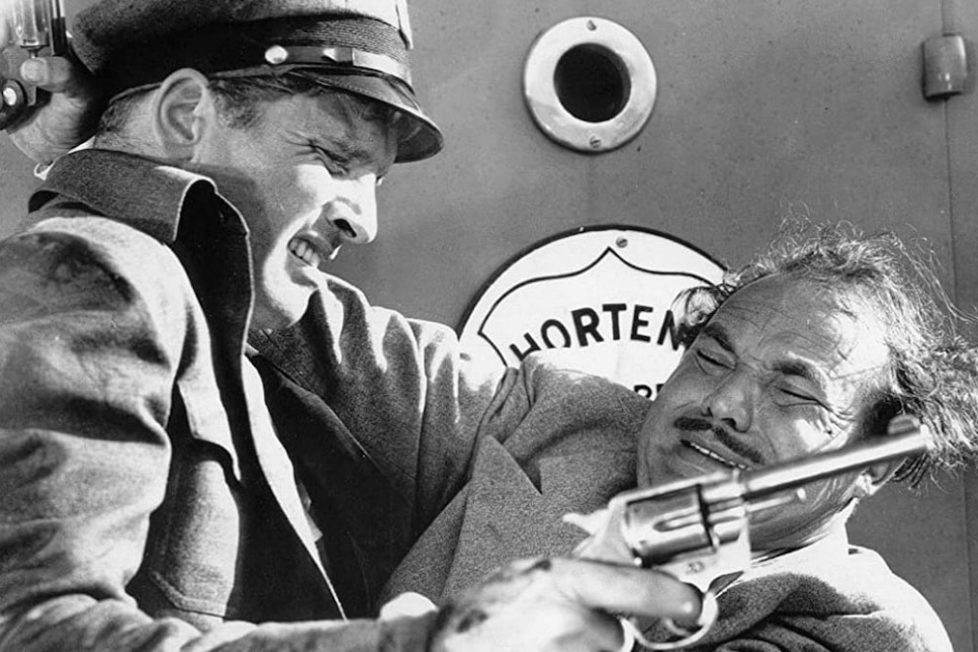
An armoured truck driver and his ex-wife conspire with a gang to have his own truck robbed.


Thompson (Burt Lancaster) is an armoured truck driver with an ex-wife he still loves, Ann (Yvonne De Carlo), who later remarried notorious gangster Slim Dundee (Dan Duryea). The crux of the story has Thompson hatching a plan to help Dundee’s men rob his truck’s payload, split the money, and use the cash to run away with Ann… so what could go wrong? Well, this is a film noir, which means just about everything…
Criss Cross flashes back to show us the lead-up to this terrible idea. Thompson’s floated from job to job, trying to get his ex-wife out of his bones, and has now returned to Los Angeles to reunite with his parents and brother. Lancaster plays Thompson as the kind of uncharismatic lunk for whom you suspect thinking gives him a headache. He’s all large muscles, larger hair, and a short temper.
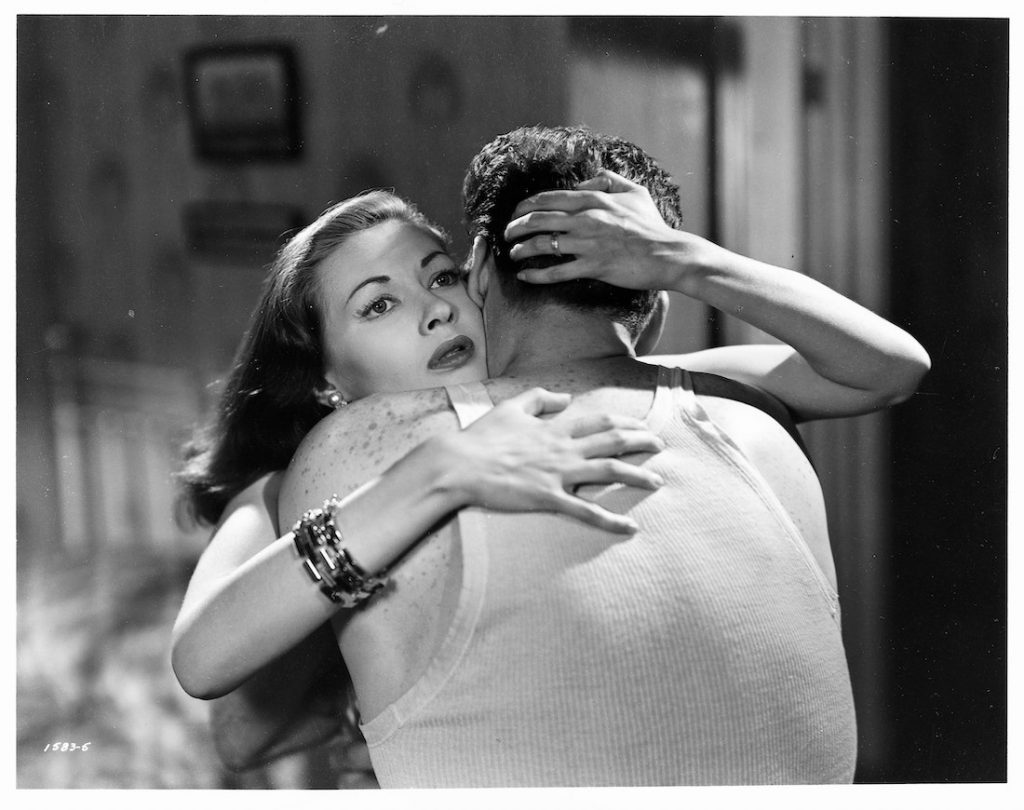
Yvonne De Carlo has the looks to make Ann a classic femme fatale; a dangerously attractive woman who puts lead in the pencil of both Thompson and Dundee. Sadly, the character’s written with none of the charms of Joan Bennett in The Woman in the Window (1944), or the razor-sharp cut-you-down-to-size teases of Barbara Stanwyck in Double Indemnity (1944). Instead, Ann’s the sort of woman who makes a man’s friends angry and his mother nervous. As for Thompson himself, he never seems to be happy when he’s with her. She’s bad for him, but unlike other femme fatale characters, Ann doesn’t seem worth the risk.
Daniel Fuchs’ screenplay (adapting the novel by Don Tracy) fleshes out Thompson and Ann’s world with supporting characters who are more memorable than either of them: there’s Pete (Stephen McNally), Thompson’s cop friend who seems resigned to the fact Thompson will cross the line into the turf he patrols; a barfly who’s the butt of everyone’s jokes and thinks she can read people; Thompson’s nervous, caring mother; a wisecracking goon played by the ridiculously overqualified Broadway heavyweight; a bartender who seems singularly ill-equipped to tell people they’ve had enough; and, of course, the lovable old armoured car colleague nicknamed “Pop” (Griff Barnett), who might as well walk around blithely announcing he only has two days left until retirement.
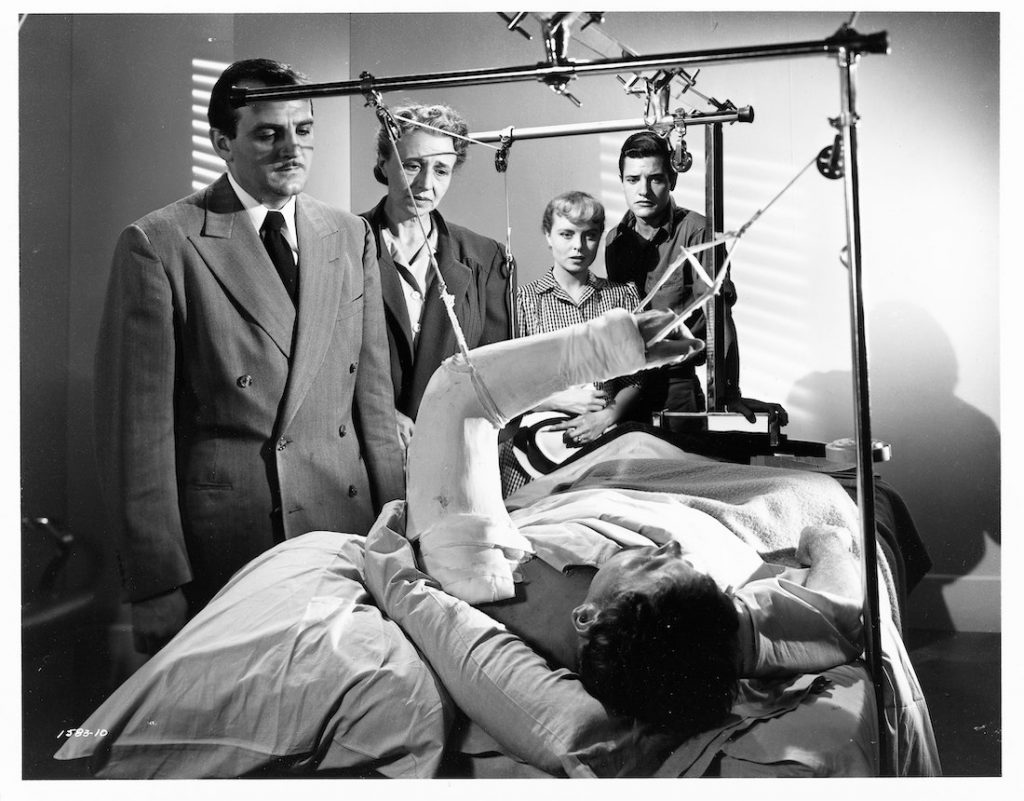
Criss Cross takes its time detailing Thompson’s relapse as he once again becomes addicted to Ann. But this time she poses an even greater danger to him because the man she’s dating is a notorious criminal. Playing the third part of this triangle, Dan Duryea takes an off-the-shelf one-size-fits-all hoodlum character (complete with a black suit, white tie, and slicked-back hair) and imbues him with relaxed authority. Over his long career playing villains, Duryea elevated being menacing into an art form. He’s in command of any room he enters and convincingly dangerous in a way that’s still unsettling. He gives the best performance in the film by a country mile, and yet the real star of the film is someone else…
Robert Siodmak was a master filmmaker and it’s only right Eureka Entertainment include him in their ‘Masters of Cinema’ series. For all the flaws of Criss Cross (chief among them being that at only 88-minutes and yet still feels overlong), it’s peppered with outstanding sequences.
The opening aerial shot, hovering over downtown Los Angeles, descending towards the fateful nightclub where so much of the action takes place (like the hand of fate), instantly sets the tone. And once the heist has gone off (messily), Siodmak stages a bravura sequence so fantastically executed that one wishes the story got to it sooner and exploited it further. An injured Thompson lies confined to a hospital bed, frantically watching the corridor through the use of the mirror on a dressing table by the door. At the same time he questions a man who claims to be there to visit his wife, but whom, despite his harmless appearance, Thompson suspects has come to kill him.
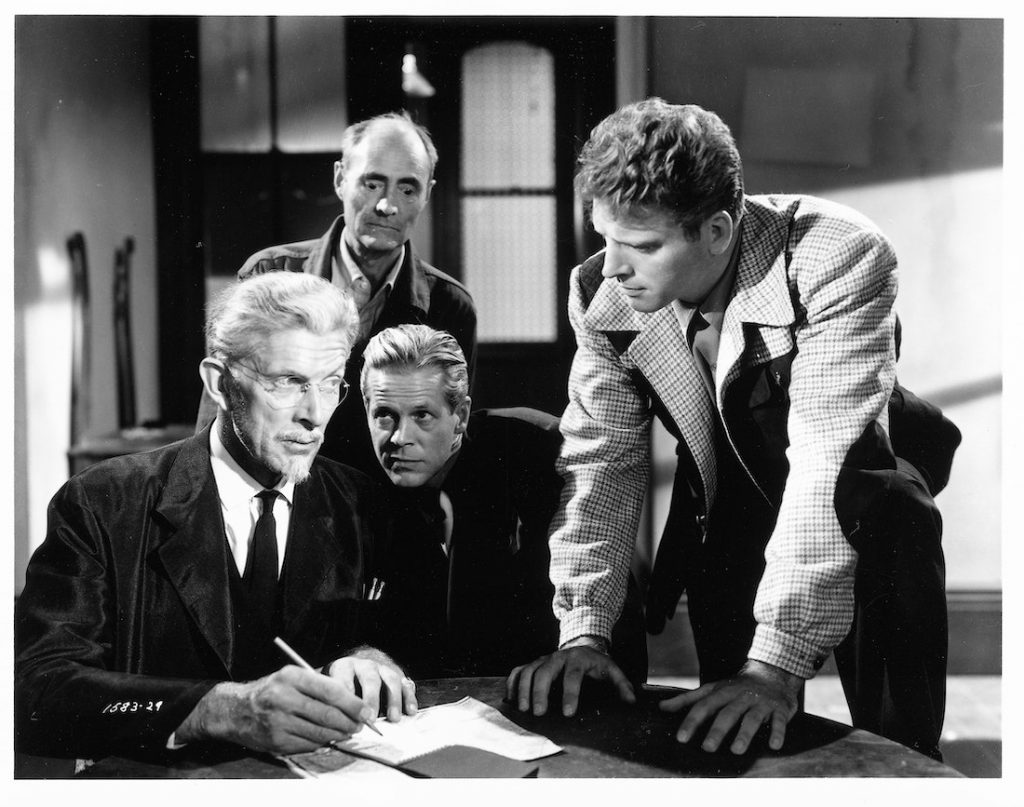
It’s as tense as the hospital sequence in The Godfather (1972), and one can’t help wondering if it inspired Francis Ford Coppola’s masterpiece. But it also highlights the strengths and weaknesses of Fuchs’ screenplay. Whenever Thompson is having a one-on-one conversation with anyone other than Ann, the movie shines, but whenever she’s on-screen it starts to drag. One could argue Fuchs didn’t know how to write for women if it wasn’t for Thompson’s mother and the barfly proving otherwise. The real problem is that the script wants Ann to be both a femme fatale and an innocent woman caught in Dundee’s clutches. The result of this balancing act is that she ends up being nothing much of either.
Complimenting Siodmak’s excellent direction is the music score by Miklós Rózsa and the cinematography of Franz Planer, with both men on top form. Criss Cross makes good use of since-razed Bunker Hill locations (although not nearly as much as Kiss Me, Deadly), and the back projection is largely convincing (although I still maintain that no star of Hollywood’s Golden Age had ever seen a human being drive before they decided they could mime it on film).
Criss Cross is a good film noir and ticks all the genre’s boxes: a man who commits a crime because of his obsessive love (or lust) for a woman… a self-loathing voiceover that both excuses and condemns his actions… a crime gone wrong… sex, death… and the only ending imaginable. However, it might be for this reason Criss Cross isn’t held up as being one of the greats, as there’s no outside angle, nothing unusual or off-kilter, and nothing truly original about it. And sure, you don’t have to be original to be a great film noir, but you do need to do everything peerlessly… and this is no Out of the Past (1947).
USA | 1949 | 88 MINUTES | 1.37:1 | BLACK & WHITE | ENGLISH

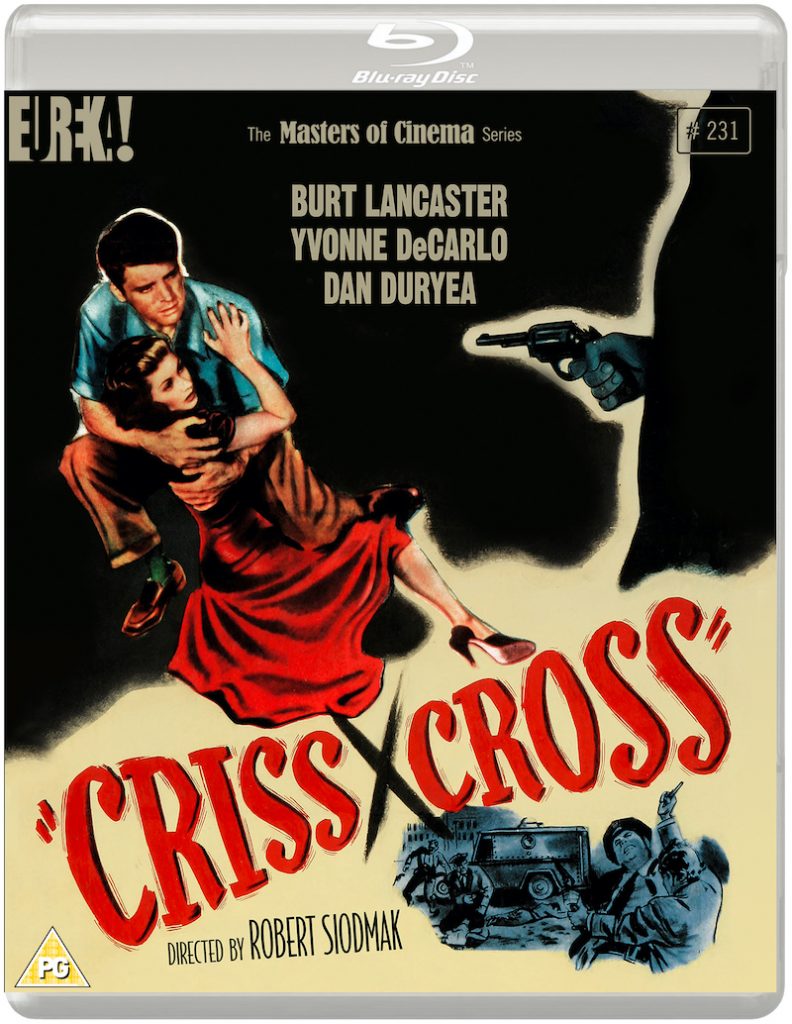
Eureka Entertainment has done a fantastic job with this Blu-ray restoration and transfer. The image is pin-sharp, scratch-free, and frankly looks far better than it would have in 1949. The audio is equally great with no hissing or popping. If you already own a copy on DVD, this Blu-ray is well worth the upgrade. And if you’re a film noir aficionado looking to add this to your collection, this version is the one you need to own.

director: Robert Siodmak.
writer: Daniel Fuchs (based on the novel by Don Tracy).
starring: Burt Lancaster, Yvonne De Carlo, Dan Duryea, Stephen McNally, Esy Morales, Tom Pedi, Percy Helton & Alan Napier.

